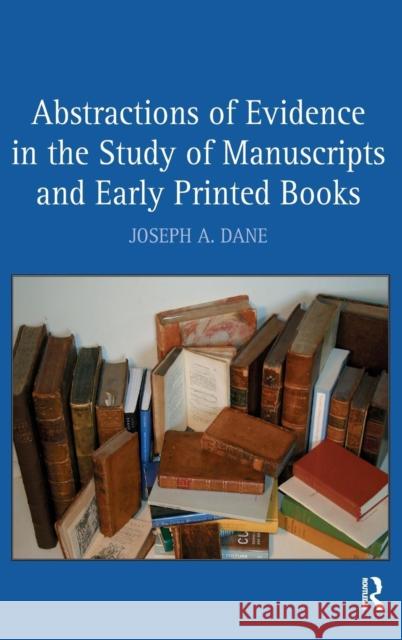Abstractions of Evidence in the Study of Manuscripts and Early Printed Books » książka
Abstractions of Evidence in the Study of Manuscripts and Early Printed Books
ISBN-13: 9780754665014 / Angielski / Twarda / 2009 / 184 str.
In this book, Joseph Dane critiques the use of material evidence in studies of manuscript and printed books by delving into accepted notions about the study of print culture. He questions the institutional and ideological presuppositions that govern medieval studies, descriptive bibliography, and library science. Dane begins by asking what is the relation between material evidence and the abstract statements made about the evidence; ultimately he asks how evidence is to be defined. The goal of this book is to show that evidence from texts and written objects often becomes twisted to support pre-existing arguments; and that generations of bibliographers have created narratives of authorship, printing, reading, and editing that reflect romantic notions of identity, growth, and development. The first part of the book is dedicated to medieval texts and authorship: materials include Everyman, Chaucer's Legend of Good Women, the Anglo-Norman Le Seint Resurrection, and Adam de la Helle's Le Jeu de Robin et Marion. The second half of the book is concerned with abstract notions about books and scholarly definitions about what a book actually is: chapters include studies of basic bibliographical concepts ("Ideal Copy") and the application of such a notion in early editions of Chaucer, the combination of manuscript and printing in the books of Colard Mansion, and finally, examples of the organization of books by an early nineteenth-century book-collector Leander Van Ess. This study is an important contribution to debates about the nature of bibliography and the critical institutions that have shaped its current practice.











